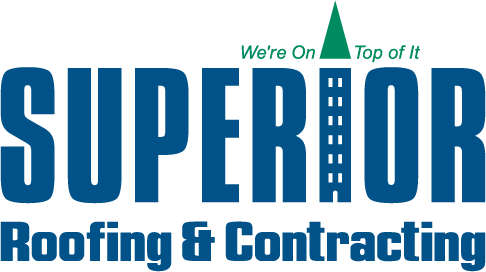by Connor | Aug 22, 2023 | Roofing

Rubber roofing Atlanta contractors provide solutions for commercial buildings that offer durability and longevity. There are also many options to choose from. For one thing, EPDM is a synthetic rubber roofing membrane that is highly durable and resistant to weathering, UV radiation, and ozone exposure. It can withstand extreme temperatures and has a lifespan of 30 years or more when properly installed and maintained.
TPO (Thermoplastic Olefin) roofing is a single-ply membrane made from rubber and plastic. It offers excellent resistance to UV rays, chemicals, and punctures. TPO roofs have a lifespan of 20 to 30 years.
PVC (Polyvinyl Chloride) roofing is another type of single-ply membrane that combines durability and energy efficiency. It provides strong resistance to chemicals, UV radiation, and fire. PVC roofs can last for more than 20 years.
Modified bitumen roofing systems consist of asphalt and synthetic rubber modifiers. They offer flexibility and superior resistance to extreme temperatures, punctures, and tears. Proper maintenance ensures that a modified bitumen roof lasts around 20 to 25 years.
Rubber shingles represent another viable solution. They are a durable alternative to traditional asphalt shingles. They are made from recycled rubber and resist weathering, wind, and impact. Rubber shingles can last up to 50 years or even more.
by Connor | Jul 19, 2023 | Roofing

Rubber roofing is probably not the first thing that springs to your mind when you think about roof materials, but it’s time to give it some love and attention. This unsung hero of the roofing world has a lot more advantages than meets the eye.
- Bounce back with durability
Rubber roofing has a secret superpower – durability! According to recommended EPDM roofing Atlanta specialists, rubber roofing can withstand extreme weather conditions, resist UV rays, and bounce back from hail and heavy impacts. It’s like having a superhero cape for your roof!
- No more rumble in the jungle
Say goodbye to the rumble and grumble of rain pouring on your roof. Rubber roofing provides excellent sound insulation, so you can enjoy peaceful nights without the sound effects of a tropical storm.
Rubber roofing is recyclable. So, by choosing it, you are giving those worn-out tires and old membranes a new start and reducing waste. It is a win-win for your roof and the environment!
- Flexibility at its finest
Rubber roofing is flexible and can adapt to various roof shapes and sizes. It effortlessly bends and molds to create a seamless protective barrier for your home.
With rubber roofing, maintenance is a breeze, saving you money. You will also have more time to focus on more exciting things.
by Connor | Jun 30, 2023 | Roofing
Whether building a new home or updating an existing one, the roofing option is essential. Not only does it impact the home’s appearance, but it also plays a critical role in protecting your family and belongings from the harsh outdoor elements. Moreover, environmental considerations and costs may also come into play.
The first step when searching for an eco-friendly, cost-effective roofing option is determining your budget. Speak with a roofing contractor or an environmental consultant to discuss your financial capabilities. This will help narrow down the types of choices available to you.
The next step is to research various eco-friendly and cost-effective roofing options available. Recycled materials, energy-efficient tiles, and solar panels are just some choices. Consider each option’s lifespan, energy performance, and sustainability ratio to determine which is most suitable for your home.

Finally, once you have selected the option that best fits your needs, set up an evaluation with an eco friendly Atlanta commercial roofing contractor. The contractor will evaluate your roof’s condition and determine whether the eco-friendly option is suitable for installation. This is also the time to inquire about maintenance routine and warranties for the roofing option.
In conclusion, searching for the most eco-friendly and cost-effective roofing option can be arduous. However, this effort is well worth the rewards of having a sustainable roof system that is energy-efficient and decreases energy bills. Furthermore, speaking to roofing contractors and environmental consultants will help ensure the roofing option suits your needs and budget.
by Connor | Apr 29, 2023 | Roofing

Put shortly… yes and no. EPDM stands for Ethylene Propylene Diene Monomer, which is a type of synthetic rubber. On the other hand, rubber roofing is a broad term that can refer to any type of roofing material made from rubber. So, EPDM is a type of rubber roofing, but not all rubber roofing is EPDM.
EPDM roofing is popular due to its durability, weather resistance, and energy efficiency. A highly skilled EPDM roofing Atlanta company confirm that it is commonly used on flat roofs and can last up to 50 years with proper maintenance. It is also easy to install and can be a cost-effective solution in the long run.
Rubber roofing, on the other hand, can refer to a variety of materials, including EPDM, but also TPO and PVC, for instance. It is important to note that not all rubber roofing options have the same durability and weather resistance as EPDM roofing. PVC and TPO have their unique characteristics, such as being highly resistant to UV radiation and chemical exposure, which makes them popular in commercial roofing applications. However, they may not be as flexible as EPDM and can be more expensive.
If you are considering getting a new roof or replacing an existing one, it is important to consult with a professional roofing contractor in Atlanta to help you understand the best roofing options for your needs and budget.
by Connor | Mar 16, 2023 | Roofing
TPO roofing is a popular choice for commercial and residential buildings in Atlanta due to its durability, energy efficiency, and ease of installation. However, there are some potential drawbacks to consider when using TPO roofing in Atlanta:

- TPO roofing can absorb a lot of heat, especially in warm climates like Atlanta. This can cause the material to expand and contract, leading to potential damage over time.
- These types of roofs can degrade over time due exposure to UV rays. In areas like Atlanta where there is a lot of sun exposure, it’s important to choose a TPO roofing system with adequate UV protection to prevent premature aging and degradation.
- The quality of a TPO installation can vary depending on the contractor. It’s important for your contractor to have experience working on TPO roofing systems, to ensure that the installation is done correctly.
- If your TPO roof is not installed properly or the roof structure is not designed to slope correctly, ponding water can occur on the roof surface. This can lead to leaks and other water damage issues.
- TPO roofing is available in limited color options compared to other roofing materials. This can make it more challenging to match the roofing to the rest of the building’s aesthetic.
It is important to talk to TPO roofing Atlanta specialists from Superior Commercial Roofing & Contracting. They will provide you with the best information about commercial roofing so you can make an informed decision when it comes to quality commercial roof installation and repairs.
by Connor | Feb 20, 2023 | Roofing
Even though TPO flat membrane roofing systems have the advantage of being among the most economical and sustainable on the market, the initial investments are still significant. In order to take advantage from their TPO roof, building owners must periodically deal with maintenance operations.

The following are some expert tips from TPO roofing Atlanta authorities on cleaning and maintaining TPO membranes:
- If you use pressurized water to clean the roof, protect any area where water may infiltrate.
- Protect the plants and exterior facades to prevent them from getting into contact with the cleaning solutions used on the roof.
- Use water at low pressure to clean and rinse the roof cover of dust and dirt (high pressure washers are not recommended because they may affect the integrity of the membrane).
- Use a soft brush or a floor mop with a cleaning solution consisting of a light and non-abrasive household detergent and water, preferably slightly warm, to clean the surface of the roof membrane; be careful not cause any accidental damage.
- Inspect the membrane and make sure that it is intact; any defect must be repaired as soon as possible by qualified contractors.
The access on the roof should be allowed only to roofing specialists, because they know what to do and how to walk on the roof to avoid causing any damage. Besides, the requirements related to work safety must be complied with, because the roofing operations are carried out at height, and a wet membrane, covered with cleaning substances, can be very slippery.






